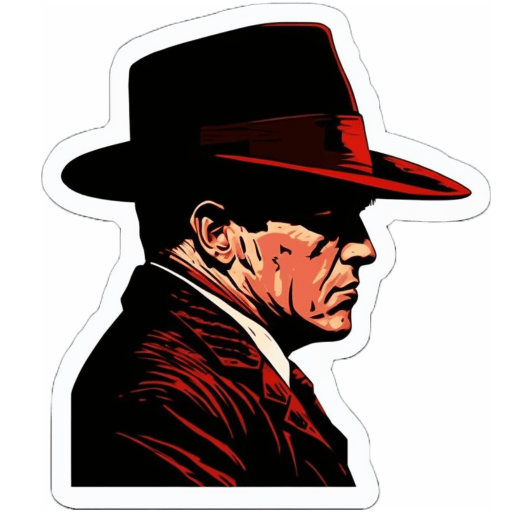For a brief moment, it looked like some Mafia-affiliated men were going to set up shop in Appleton, Wisconsin. This is that (short) story.
In March 1965 (and for the remainder of the year), Nick Gentile was working in Appleton as a siding salesman for Bilt-Rite Construction Company. While there, he also was working on a business enterprise with a man in Oshkosh. He lived at 8 Embrey Court in Appleton, near the Valley Fair Mall.
Nick Gentile and Kenneth Weiss (real name Wasniewski) entered the Siesta Club in the Town of Menasha at 1:00am on April 28, 1965. The two men ordered a drink, and then became loud and were asked to leave by manager Richard Schaefer. The men left, but returned at 2:15am and badly beat Schaefer until he passed out. A female bartender heard the commotion and saw the men drive off, noting the license plate number —the car was registered to Weiss’ wife Rita (who was the sister of gambler Raymond Mirr). Gentile was charged with battery and his attorney, Henry Hughes of Oshkosh, entered a plea of not guilty and asked for a jury trial.
The FBI asked Appleton City Inspector Charles Magnette on December 13, 1965 if they had any contact with Nick Gentile. He said no, but he indicated that Vincent Maniaci had come in a few days earlier to apply for a liquor license for 512 West College Avenue, a building owned by L. H. Chudacoff Real Estate. Maniaci returned to Magnette’s office on December 15, this time with Gentile, and proposed the idea of an Italian restaurant and cocktail lounge called the Roman House. The buildings next to 512 were a typewriter shop and a tile shop. Maniaci, who did all the talking, said he hoped to have the restaurant up and running as soon as January or February. Magnette called the FBI back and said that although Maniaci was clearly in charge, he was under the impression from Gentile’s presence that he would have some sort of financial interest.
Vincent Maniaci wrote an open letter to the Appleton Post-Crescent that was published on January 12, 1966. The newspaper had recently published a series of articles concerning Maniaci, and particularly his association with Nick Gentile. The Appleton police chief had publicly opposed the granting of a license to Maniaci. He cited his Appleton roots, saying his mother was born in Appleton on Thanksgiving and was baptized at St. Joseph’s Catholic Church. Maniaci pointed out that he had no criminal record and had held a Milwaukee bartenders license for 25 years. He specifically said that Gentile would “have no interest, financial or otherwise” in the restaurant, and pleaded that he had already invested thousands of dollars into remodeling the building.
On Thursday, January 13, 1966, Appleton’s welfare and ordinance committee decided to delay a decision on Vincent Maniaci’s license. Police Chief Earl Wolff attended the meeting and presented his written opposition. Mark Catlin, an Appleton attorney, and Max Goldsmith, Milwaukee attorney, appeared on Maniaci’s behalf and questioned why Maniaci should be denied because of guilt by association. They had heard that 13 aldermen had signed a resolution to oppose the license and demanded to know why. Alderman Glenn Thompson made a motion to hold the license in abeyance until the remodeling and inspections were done at 512 West College. He was seconded by Alderman Richard Huisman.
On January 18, 1966, Vincent Maniaci withdrew his license request. He was refunded his $275 license deposit. I believe it would be fair to say that the Appleton Post-Crescent, through the considerable coverage it gave the matter, was the reason behind the license’s controversy and ultimate dismissal. But who informed the newspaper? The FBI? Magnette?
When I first came across this story, maybe around 2012, I thought that Vince Maniaci was a “bad guy” and this move to Appleton may have bad motives. Today (2024) I’m not at all convinced of that. In hindsight, Maniaci was later a shady character connected to burglaries and mob violence. But who was he in 1965 before any of that? He wasn’t a made man, he had no criminal record. What would the Mafia have gained by Vince being in Appleton? Perhaps nothing. This story is an important lesson on not accepting preconceived notions, and not always believing the hype of the newspaper editorial.
